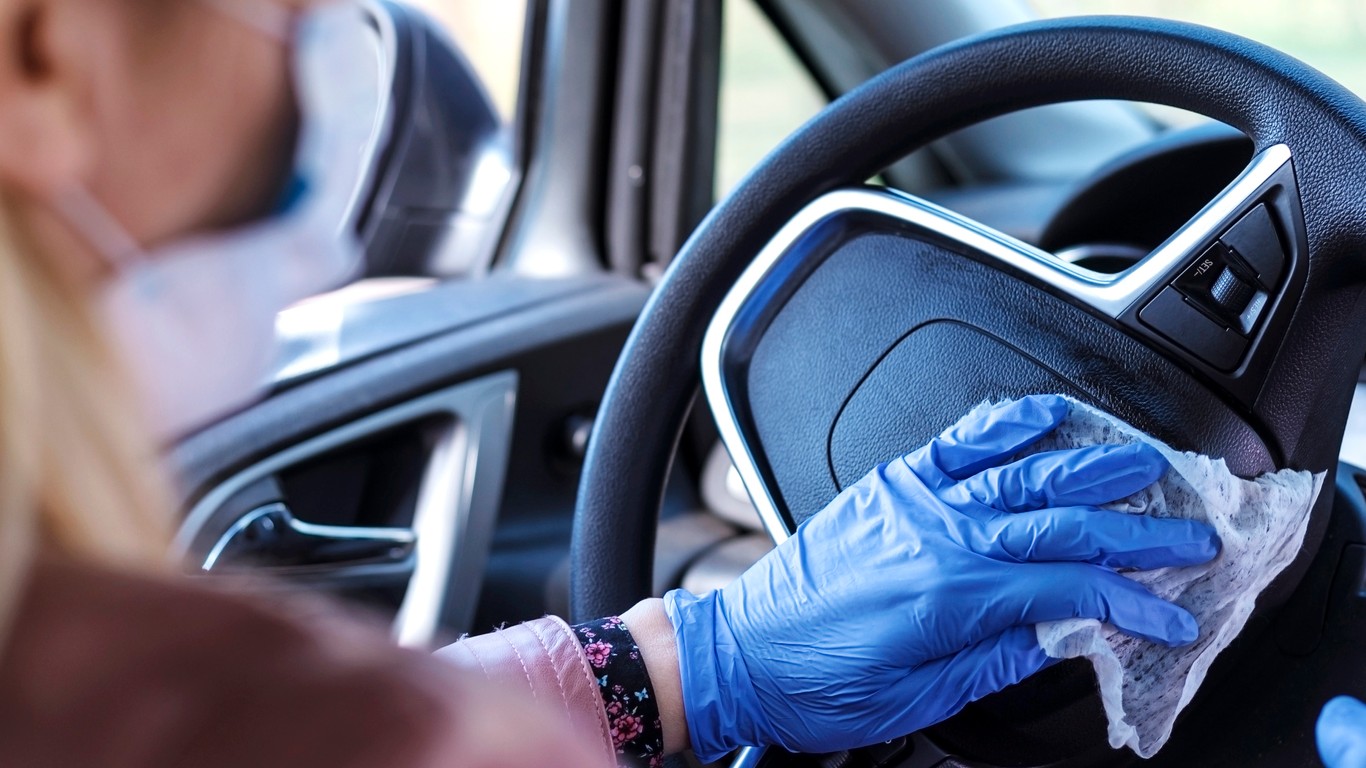
This post may contain links from our sponsors and affiliates, and Flywheel Publishing may receive
compensation for actions taken through them.
Ever since the shelter-in-place orders were issued in much of the United States in March to slow the spread of the coronavirus, the number of miles Americans are driving has declined dramatically. For many of us, that means fewer visits to family and friends, less time commuting, virtually no school pickups, and even fewer long-distance journeys.
But we still drive for essential needs, such as going to the supermarket or seeing the doctor for medical emergencies. And every time we get in a car, we are potentially transporting the coronavirus to another location, if we aren’t taking precautions to disinfect the interiors of our cars. Here is every state’s number of at-risk adults in the coronavirus pandemic.
24/7 Tempo has compiled a list of tips on how to clean your car during the coronavirus pandemic.
Click here to see tips about how to clean your car.
Because cars are small, contained areas and the virus can exist on various surfaces found on a vehicle, it is essential that drivers act to reduce the risk of spreading it. The coronavirus is transmitted via droplets from the nose or mouth when an infected person coughs, sneezes or exhales. Here are tips to prevent coronavirus and other viral infections.
Car operators need to use the proper disinfectants for surfaces as varied as rubber, plastic, leather, and metal. Most of these products might already be available in your home. The American Chemistry Council has a list of EPA-approved products. Soap and hot water is a safe option that will help reduce the spread of the virus.
The most important areas to focus on for cleaning your car frequently are areas you are most likely to touch, such as the steering wheel, door handles, radio knobs, glove compartments, and seatbelts.
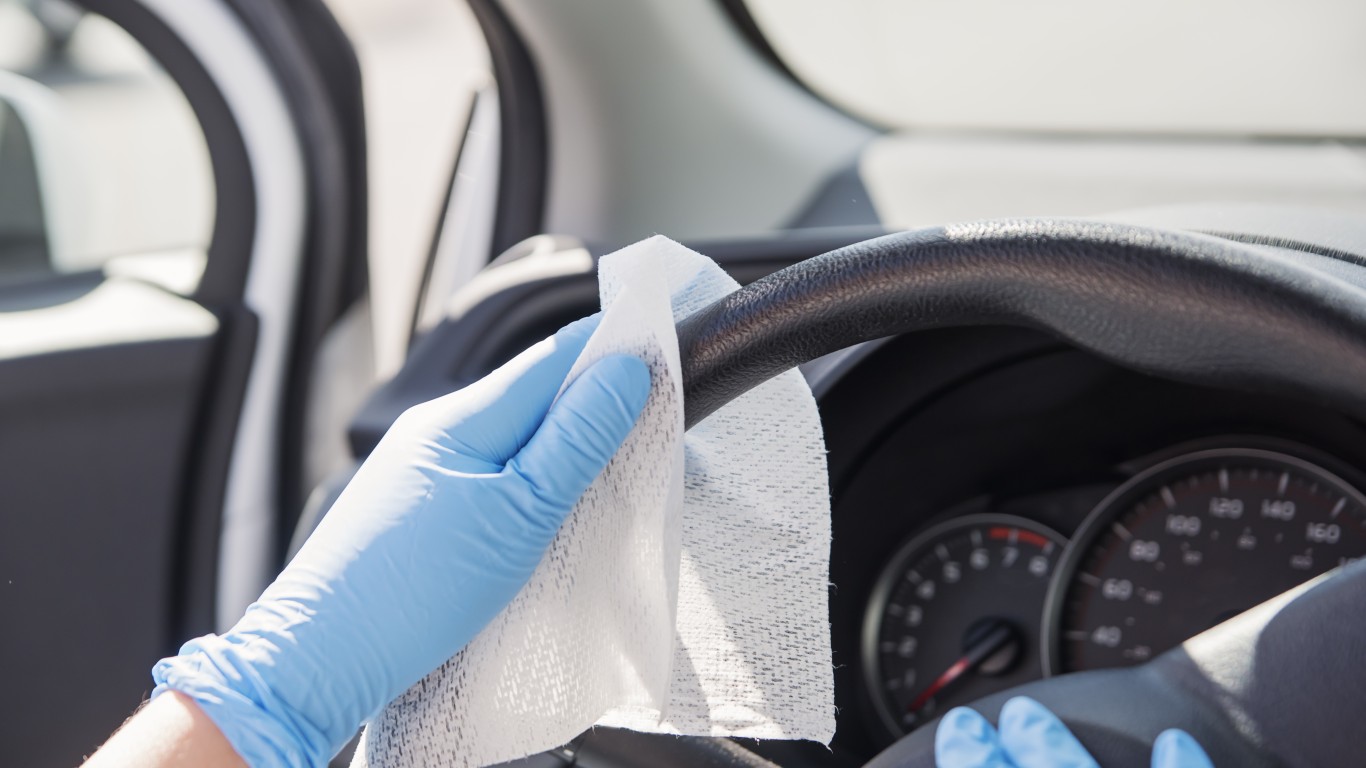
Disinfectant spray or wipes
It’s important to keep disinfectant spray or sanitary wipes in the car during the pandemic — especially if you have children — and wipe down all surfaces. But be careful about the choice of cleaners because harsh chemicals can ruin interiors such as leather. If you wipe down a leather interior, it is suggested that you apply leather conditioner once the coronavirus risk has subsided. Tissues and hand sanitizers should be kept in the car as well. The CDC recommends hand sanitizers that contain at least 60% alcohol.
[in-text-ad]
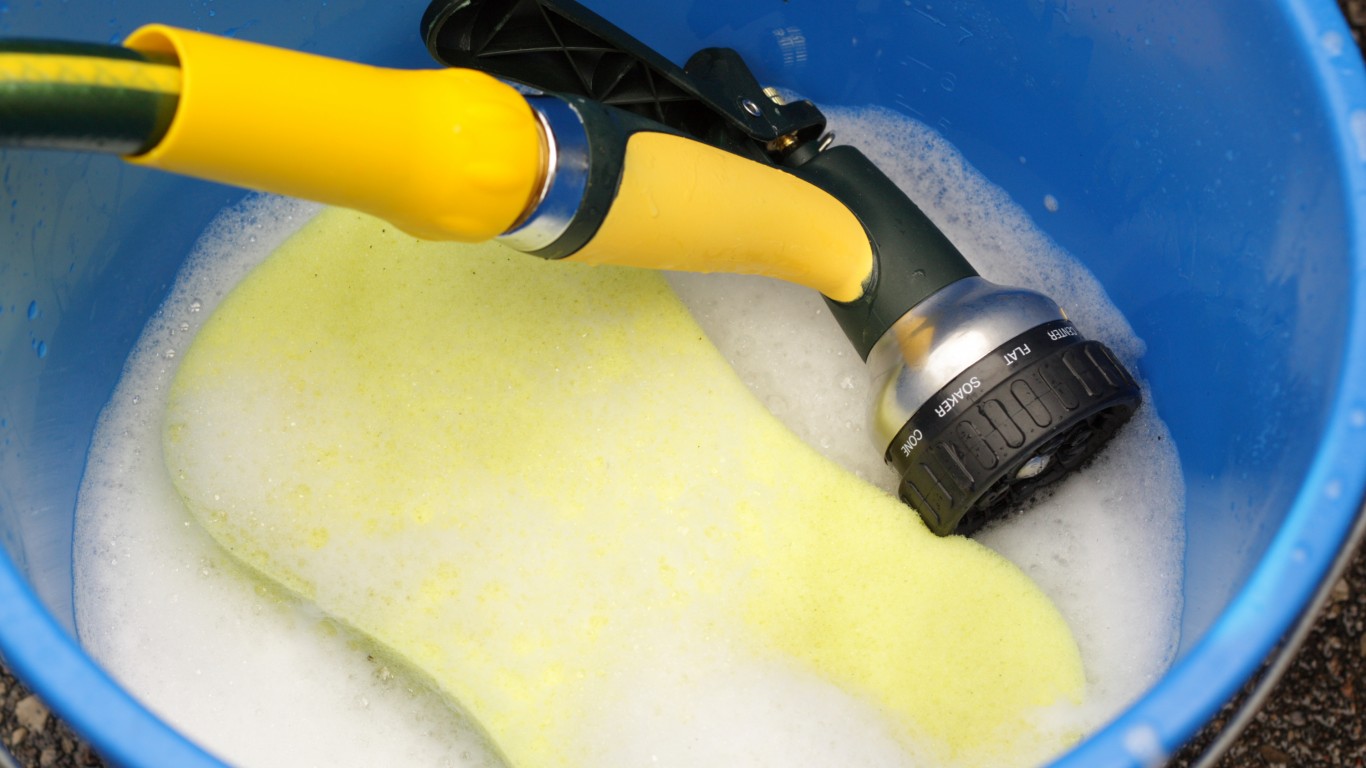
Soap and water
Soap and water is the preferred option to clean surfaces such as leather, which can be dried out by some disinfectants.
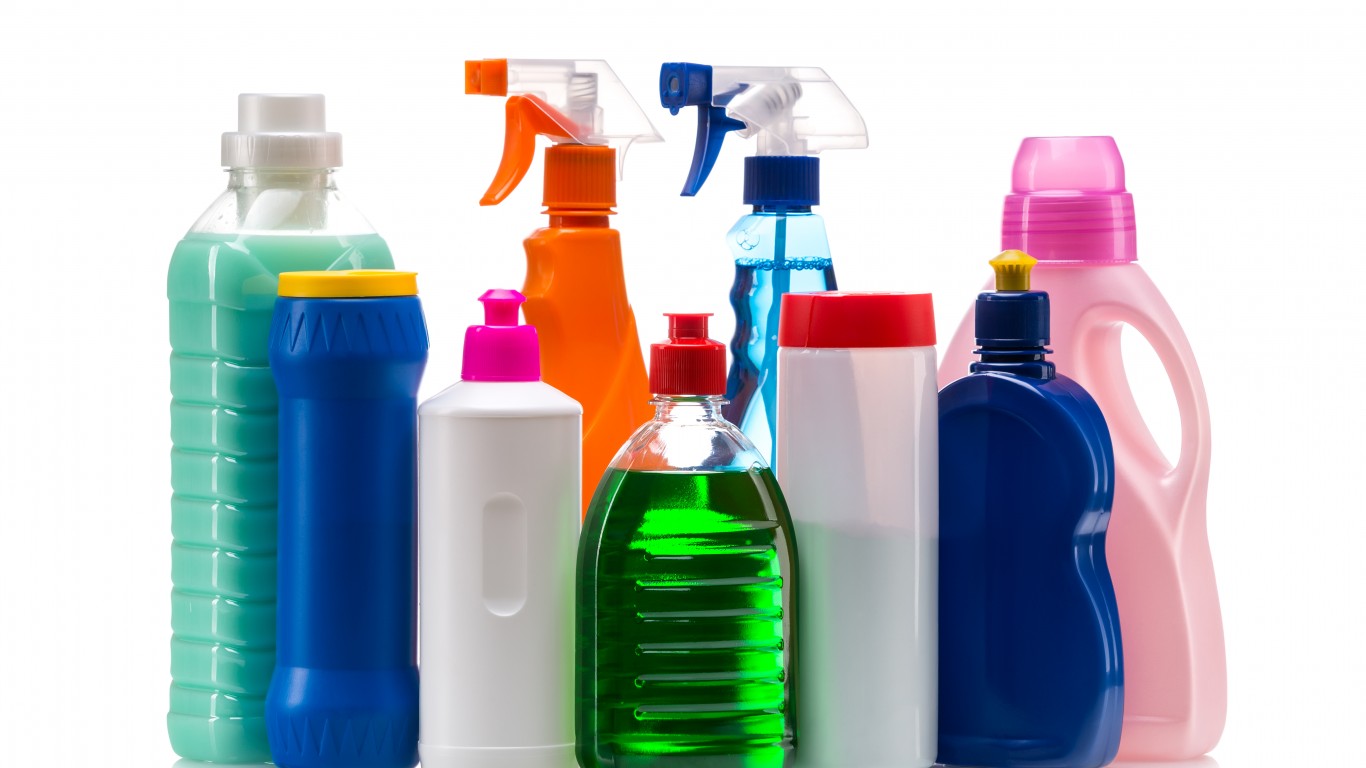
No harsh chemicals
Harsh chemicals might eradicate viruses, but they can take a toll on surfaces such as leather, which can be dried out by certain cleaning agents, so it’s best to consult the car manual for what’s recommended to clean your vehicle. Definitely stay away from bleach and hydrogen peroxide. Those chemicals can kill coronavirus, but will likely damage a car’s upholstery by causing discoloration.
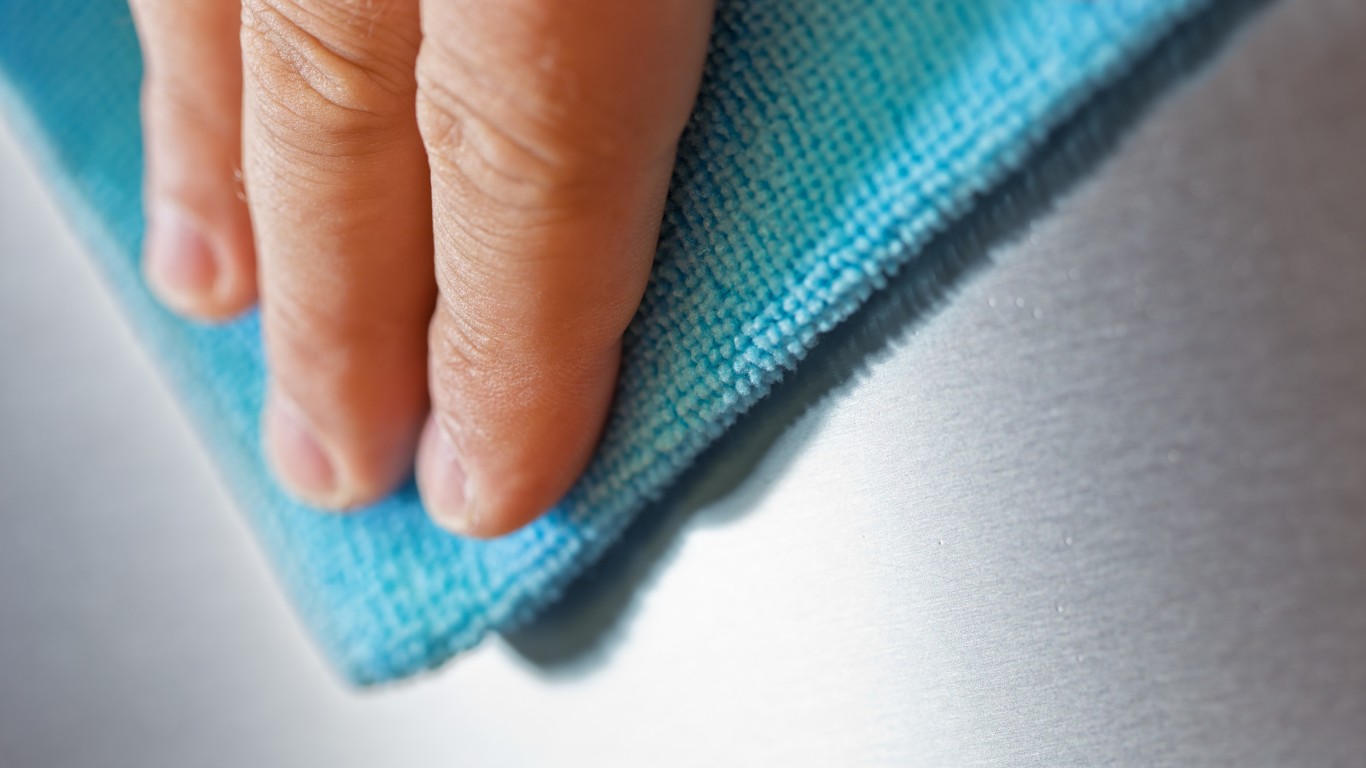
Microfiber cloths for touchscreen displays
If your vehicle has a computer touchscreen, you should wipe it down with a microfiber cloth, though before you do, check with your car manual.
[in-text-ad-2]
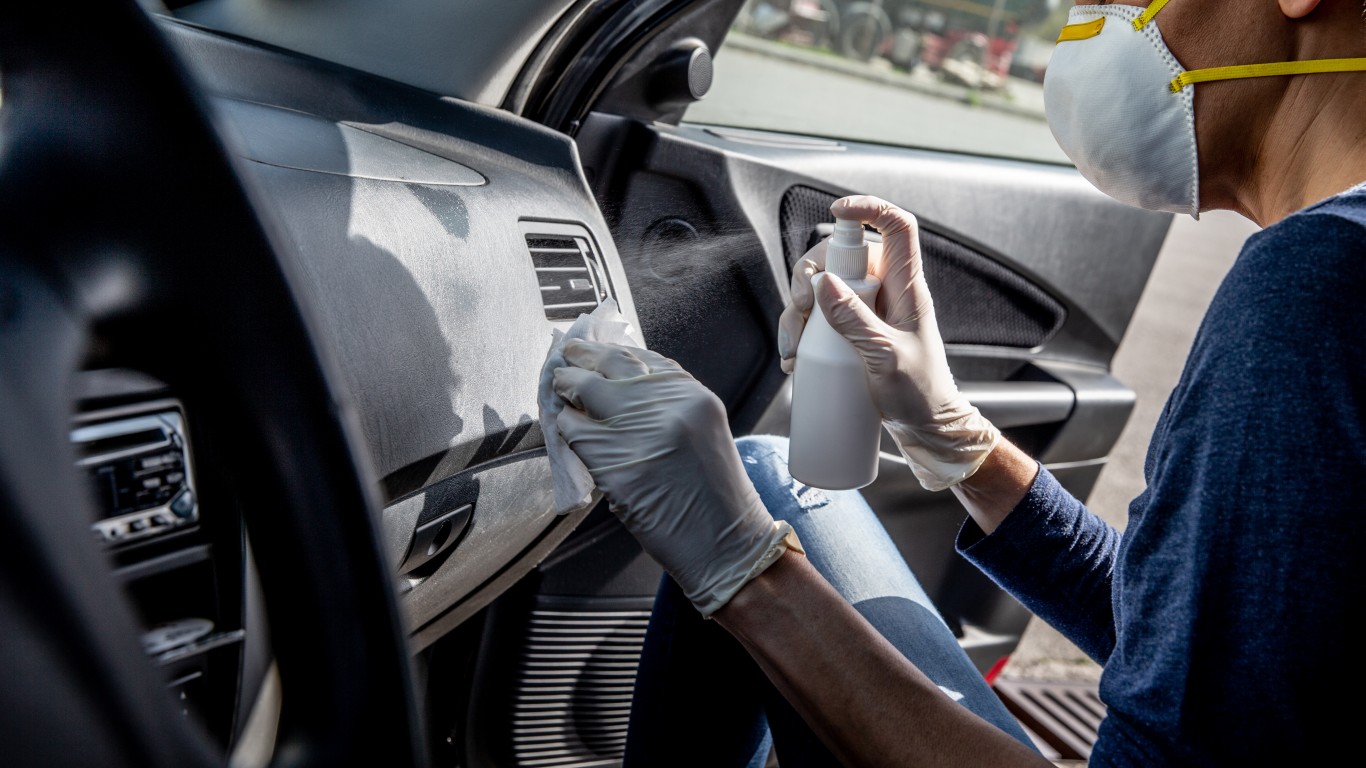
Sprays containing at least 70% alcohol
Solutions that contain at least 70% alcohol are effective against coronavirus, according to the CDC. Virtually every interior surface of a vehicle can be cleaned with isopropyl alcohol.
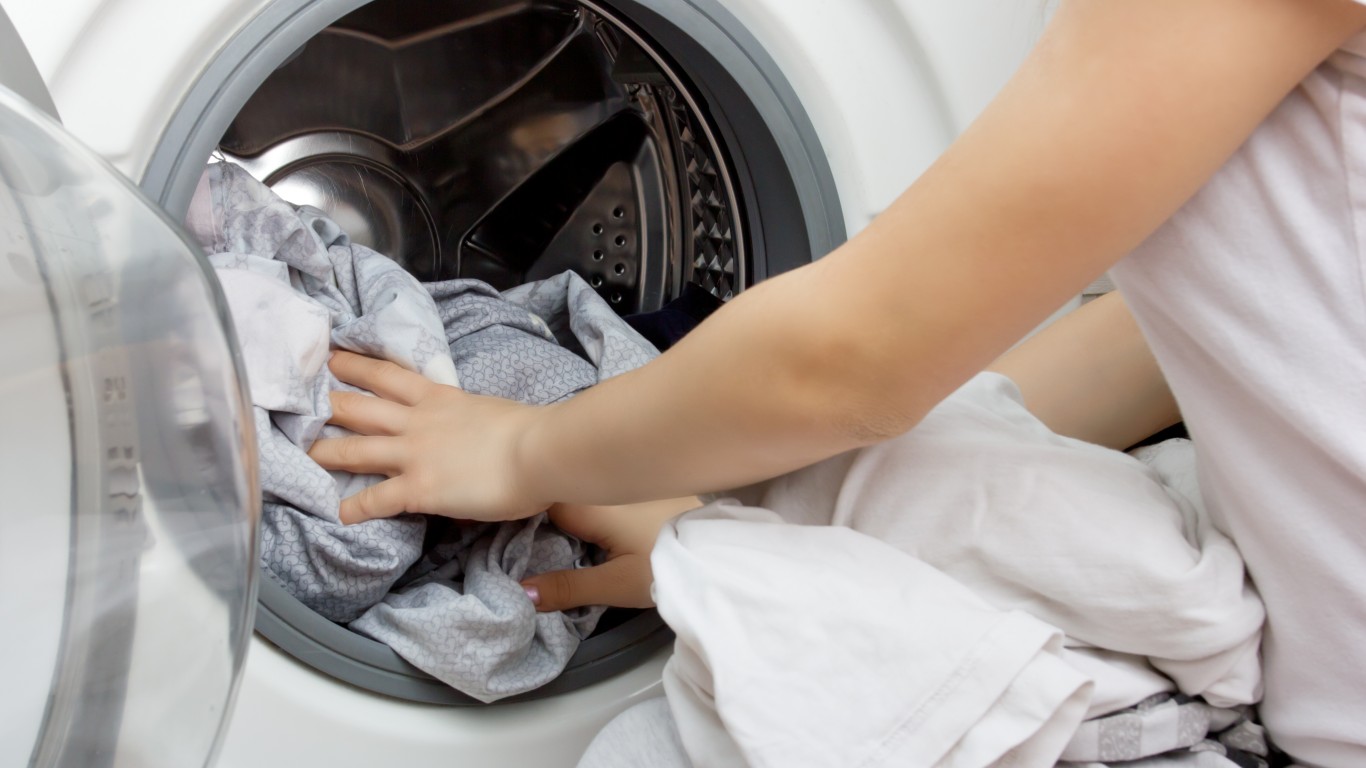
Wash items in the laundry when possible (hot water)
Items such as seat covers can be machine-washed, though it is best to consult your owner’s manual.
[in-text-ad]
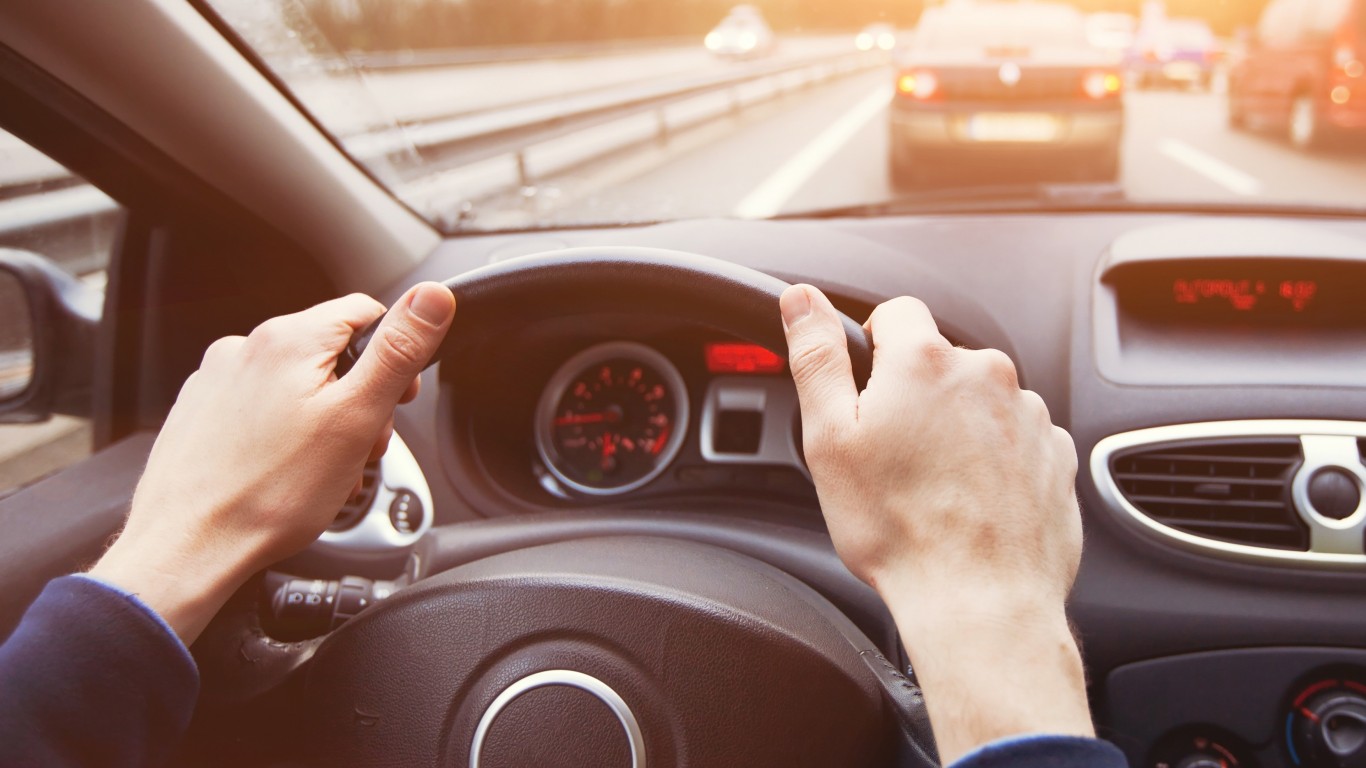
Steering wheel
The part of the vehicle you are likely to touch the most is the steering wheel, and that needs to be cleaned often and thoroughly, as recommended by the CDC. According to Expedia Travel Group’s website, the average steering wheel has 629 colony-forming units per centimeter — bacteria per square centimeter — six times filthier than an average cell phone screen and four times dirtier than a public toilet seat.
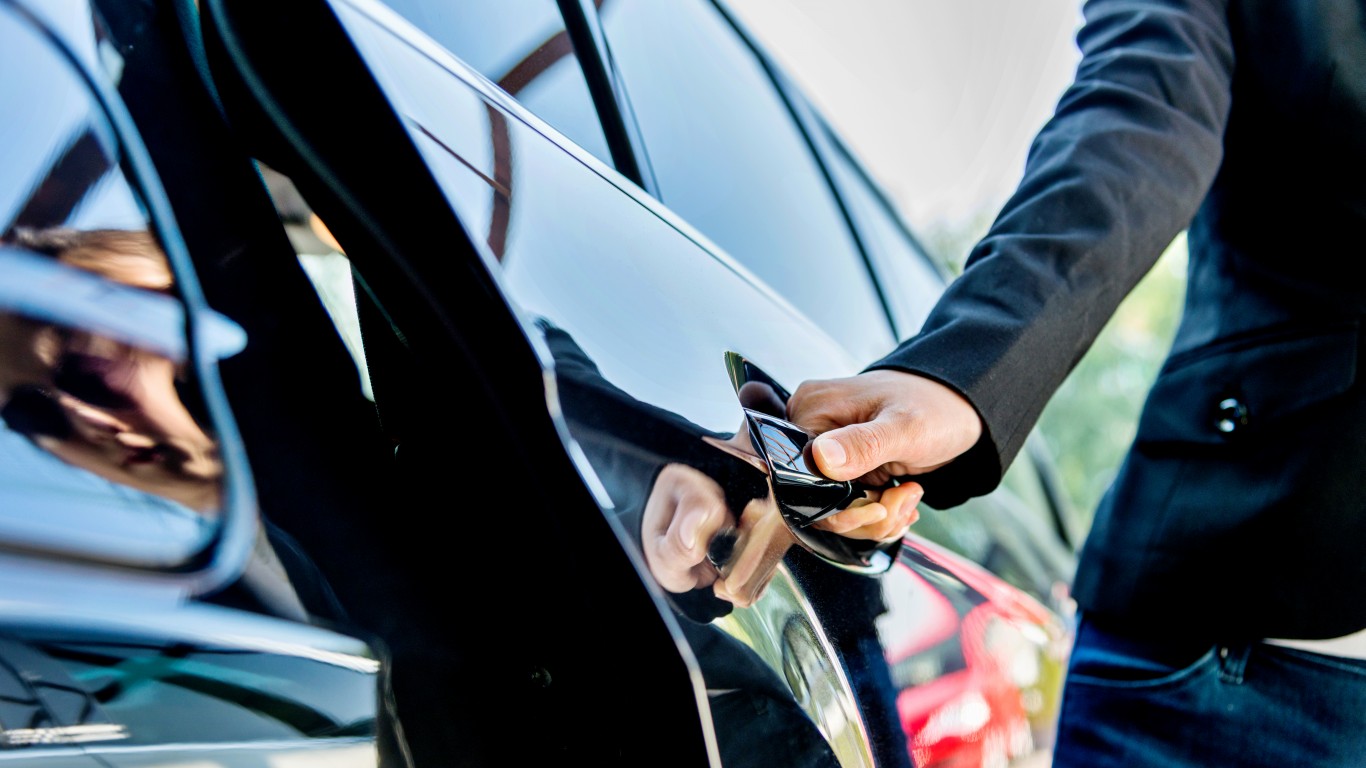
Handles
You can’t get in your car without grabbing a door handle, and you can’t exit without touching one either. The CDC recommends cleaning surfaces such as door handles daily.
Dashboard
An overlooked area that might harbor viruses is the top of the dashboard. That’s because recirculated air is forced up to the windshield and can settle on the dashboard.
[in-text-ad-2]
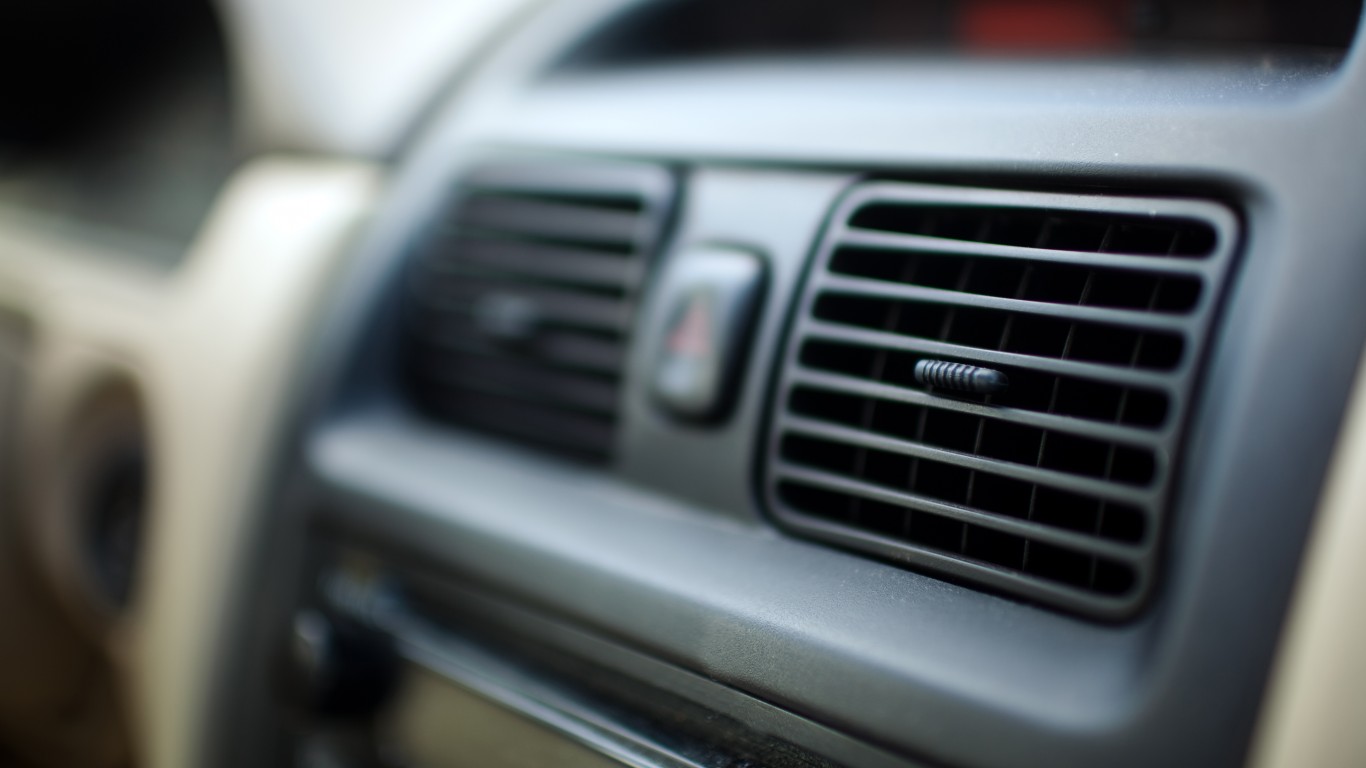
Air vents
AC vents are among the areas in the car that contain the most germs. It is recommended that car operators close the vents and dust them with a foam paintbrush. You can also apply a disinfecting wipe over the vents, but you should be careful not to get liquid inside the vents.
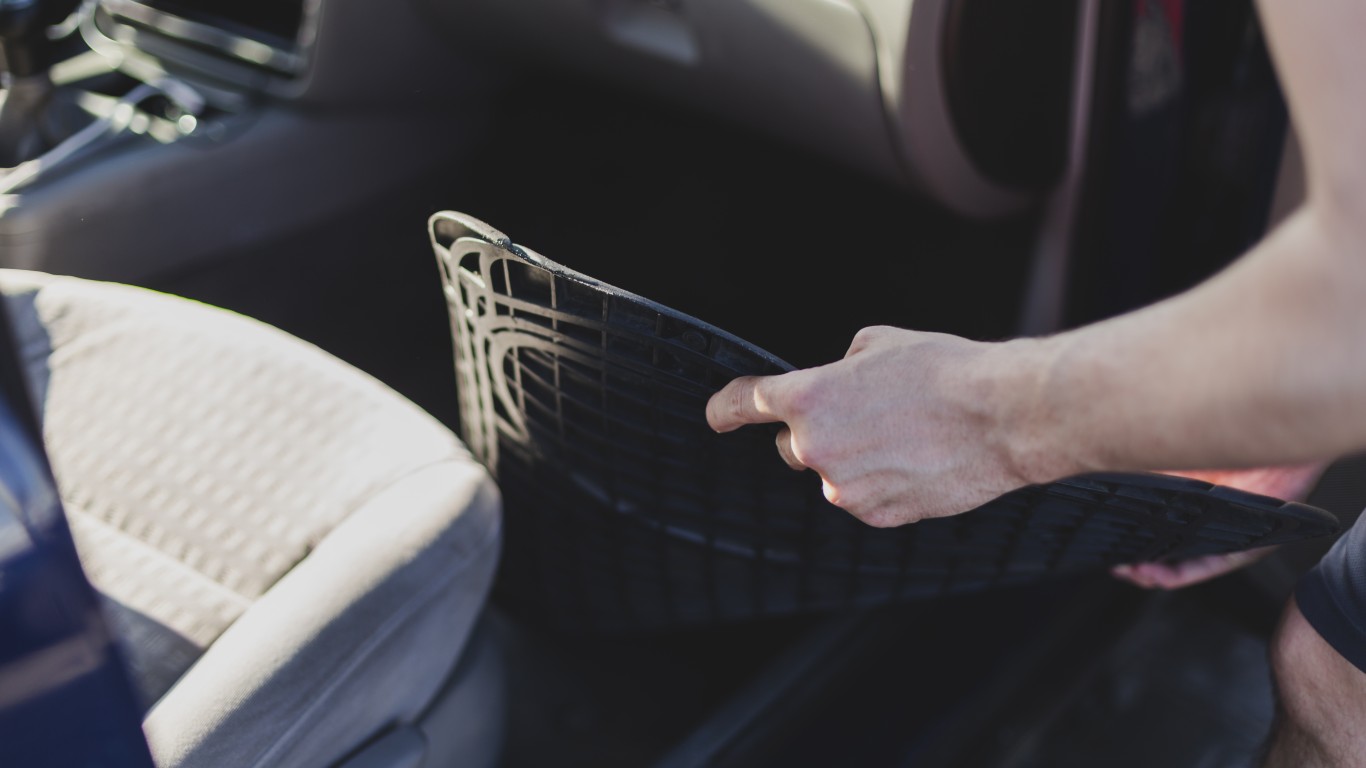
Car mats
Driver’s side car mats are among the most germ-filled areas in your car. And even though you don’t touch them that often with your hands, it makes sense to devote more attention to your car mats during this pandemic. After shaking out your car mats, put baking soda on them, wait about half an hour, and then vacuum.
[in-text-ad]
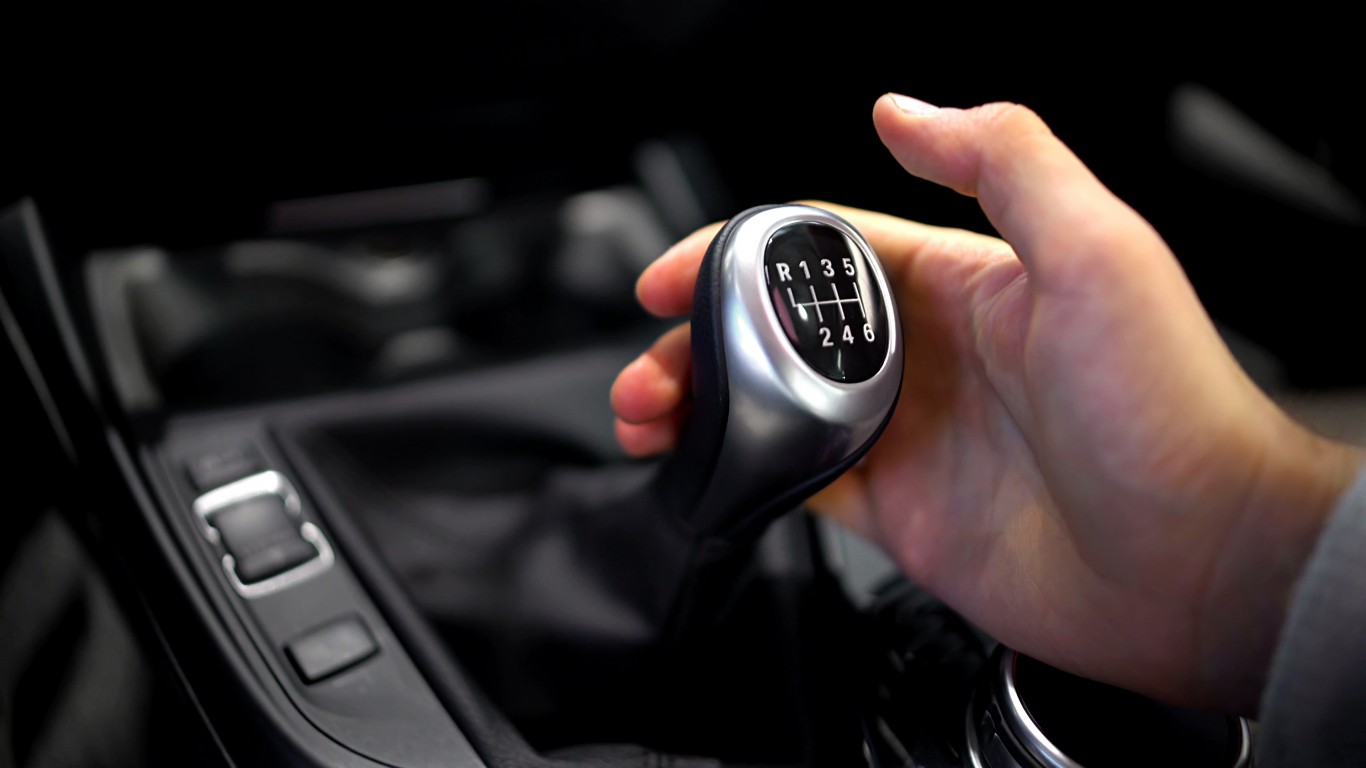
Gear shift
The gear shift is among the features that you touch most frequently while operating your vehicle. The CDC recommends that drivers clean surfaces like gear shifts and signaling levers often.
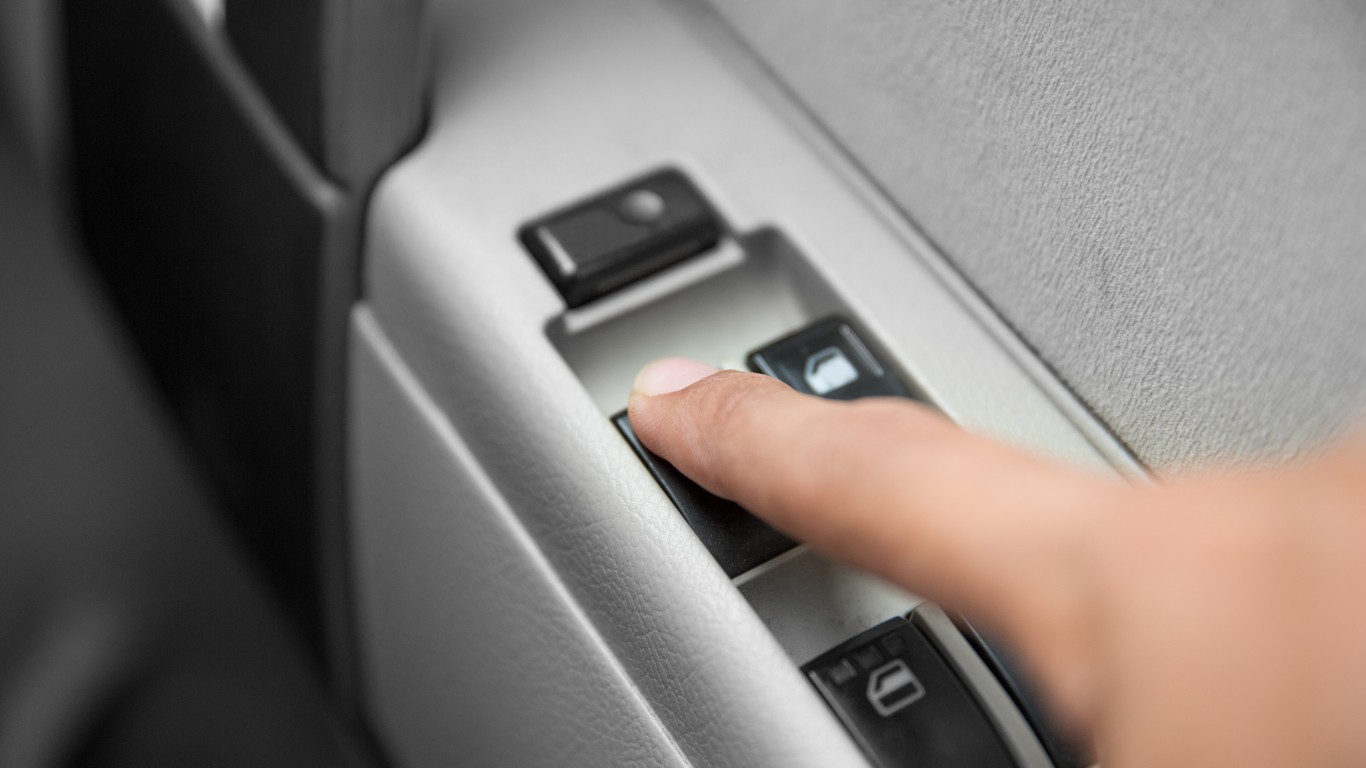
Window control buttons
Window control buttons are another area frequently touched by drivers and passengers and should be cleaned daily, based on CDC recommendations. Similar areas within a car are buttons or indicator stalks, windshield wipers, radio knobs, and glove compartments.
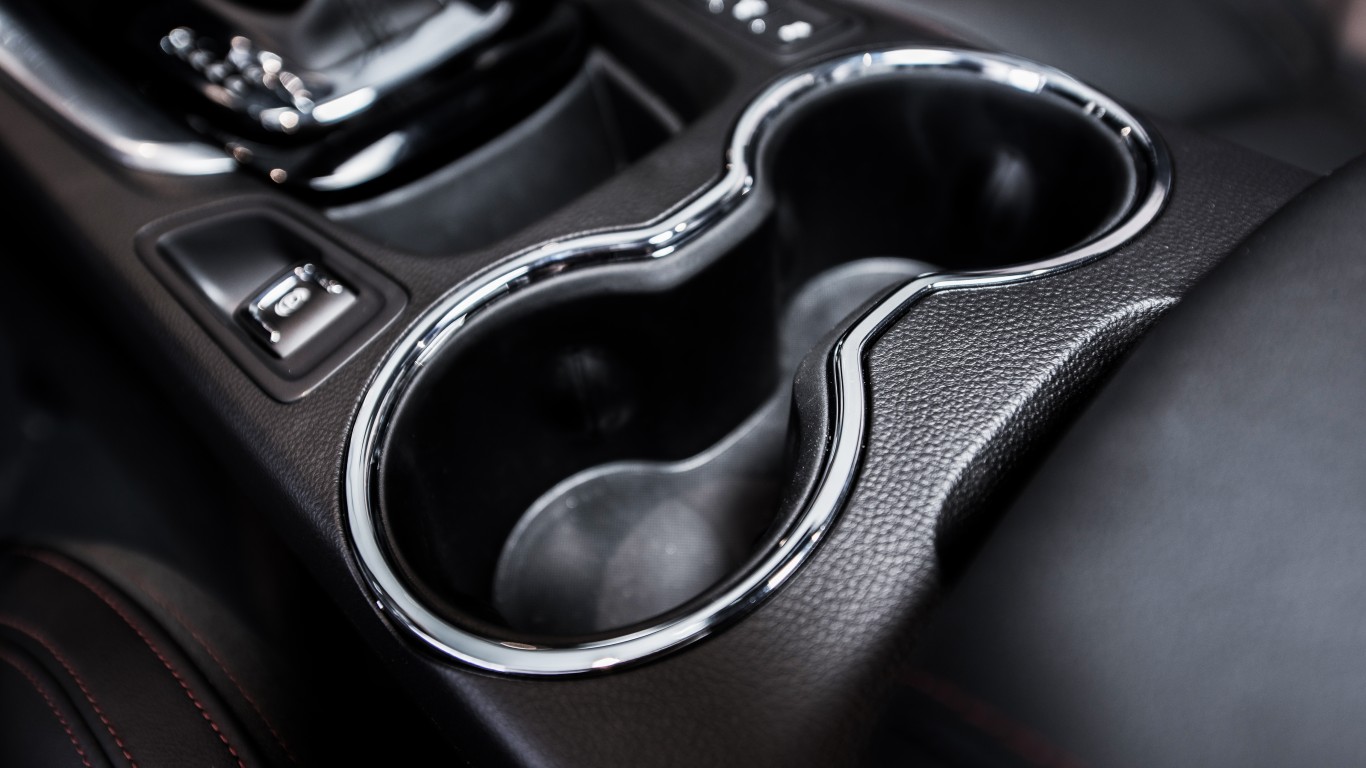
Cup holders
Cup holders in your center console are among the dirtiest areas of your car, a riot of spilled coffee, bagel crumbs, used straws, and assorted food remains. Keep the disinfectant wipes near this filthy area of the car.
[in-text-ad-2]
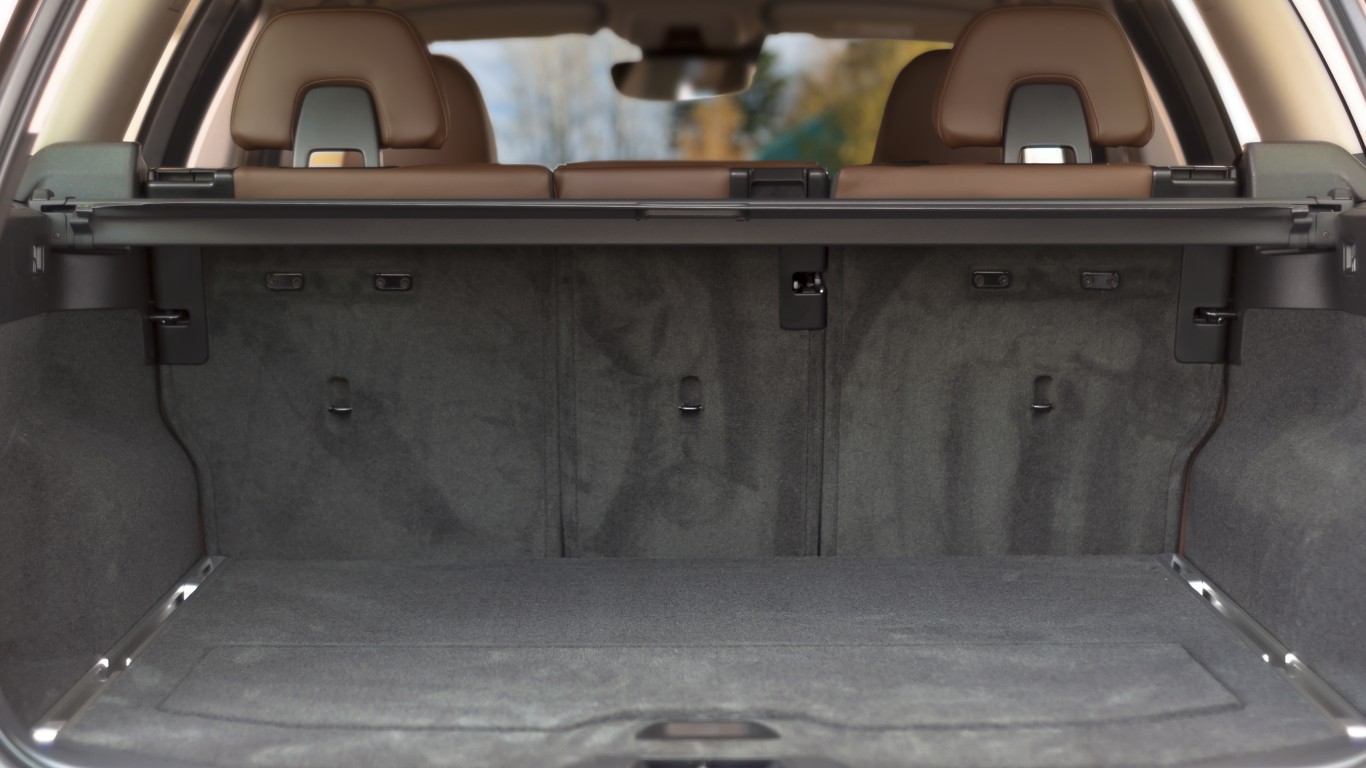
Trunk
Whether it’s used for transporting camping gear, beach chairs, or sports equipment, your trunk is a major germ center. What should give you pause is that it is also where you transport groceries and prepared foods. Vacuuming the interior and removing any carpeting is a good start, but to more effectively eradicate germs, think about investing in professional cleaning.
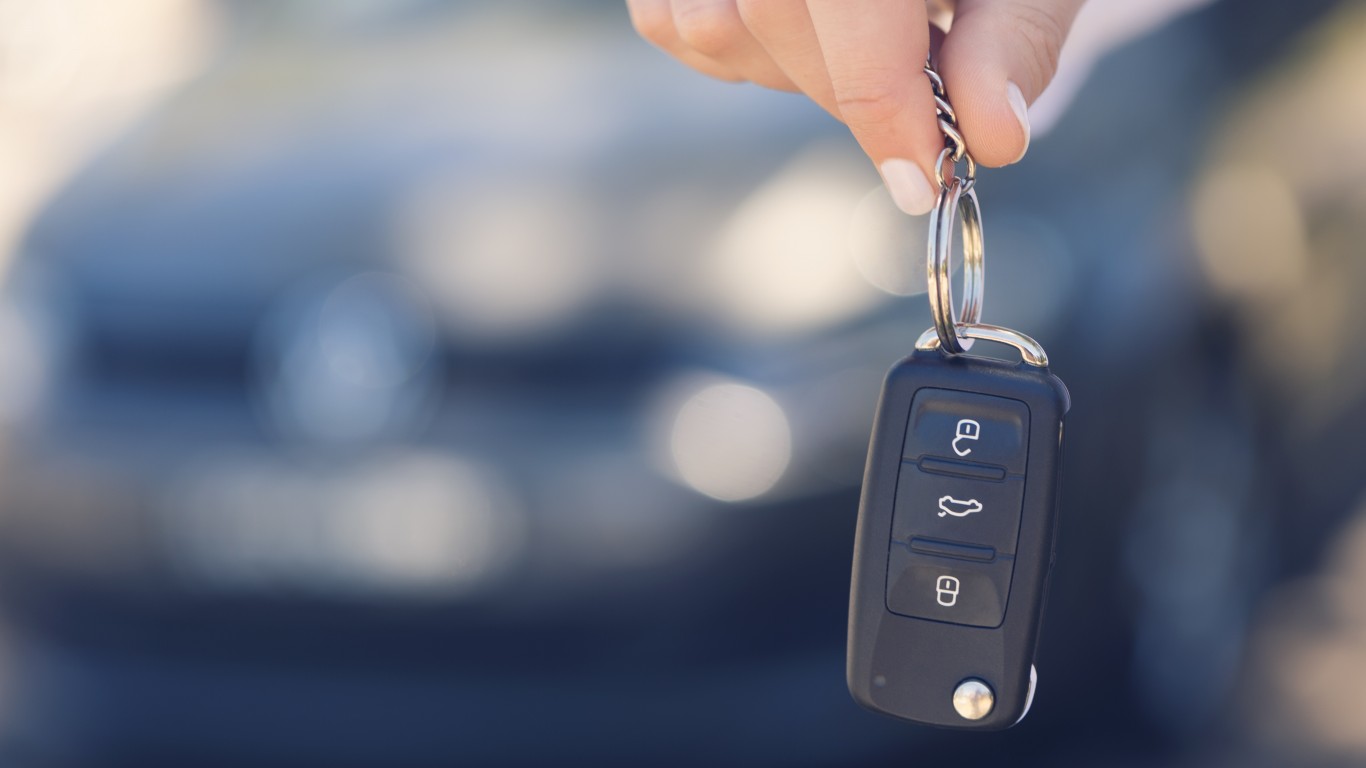
Car keys
Those keys that are jangling in your pocket or purse could potentially carry the coronavirus, especially when they come in contact with germ centers like your car’s console or if you drop them on a car mat. Wipe down your keys daily.
[in-text-ad]
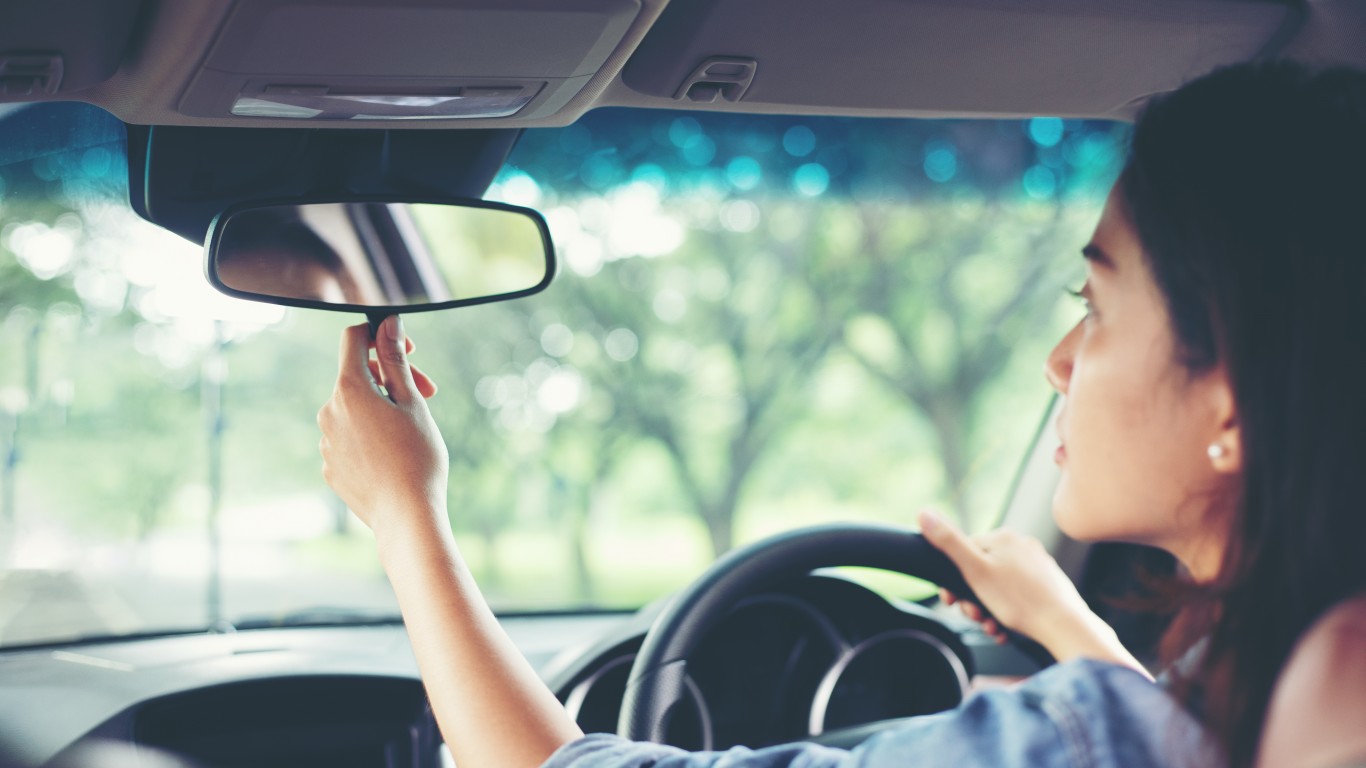
Rear and side-view mirrors
Car mirrors are among the areas that are touched often by vehicle operators. Rearview mirrors are touched more frequently than sideview mirrors, but viruses can exist on exterior surfaces as well. The New England Journal of Medicine’s recent study that tested how long the virus can remain stable on different kinds of surfaces within a controlled laboratory setting showed that it was detected on plastic and steel for up to 72 hours.
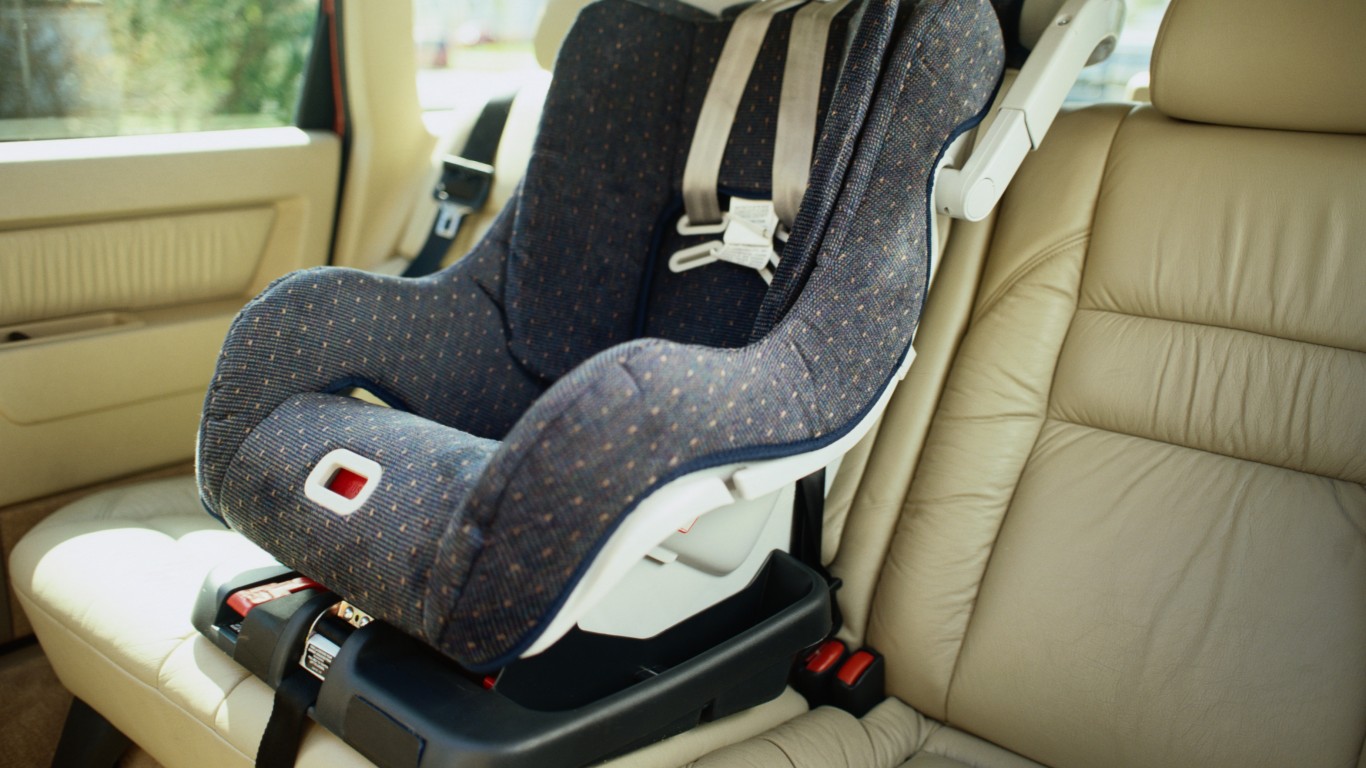
Seats and seat pockets
Seats should be wiped down with a damp cloth and mild soap, but car operators are advised to check with their automobile manuals to see what cleaning agents are allowed. Seat pockets can be an overlooked area that might contain disused items such as toys your kids no longer play with.
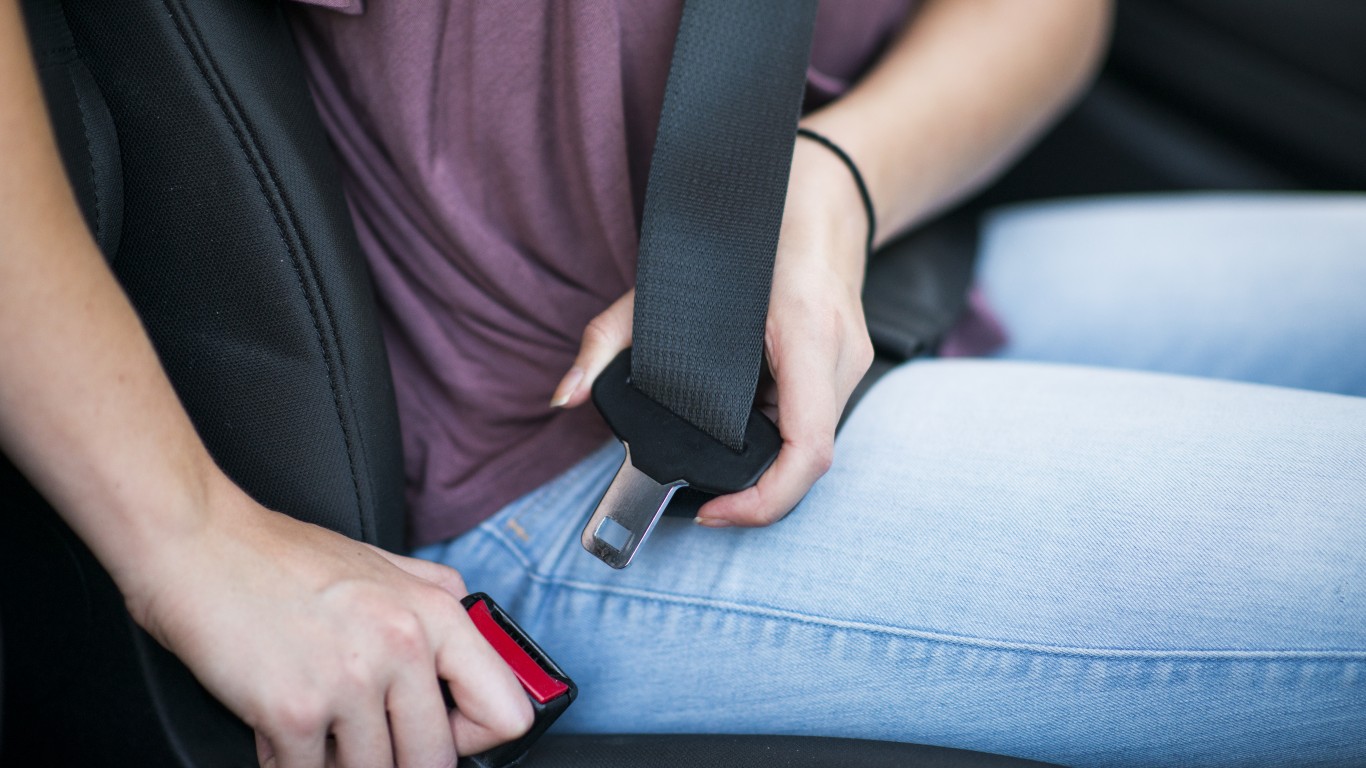
Seatbelts
Seatbelt straps should be wiped down with a damp cloth and mild soap, but drivers are advised to check car manuals to see what cleaning agents are allowed. Straps should not be washed in washing machines because that can reduce their fiber integrity as well as the fire retardants contained in them.
[in-text-ad-2]
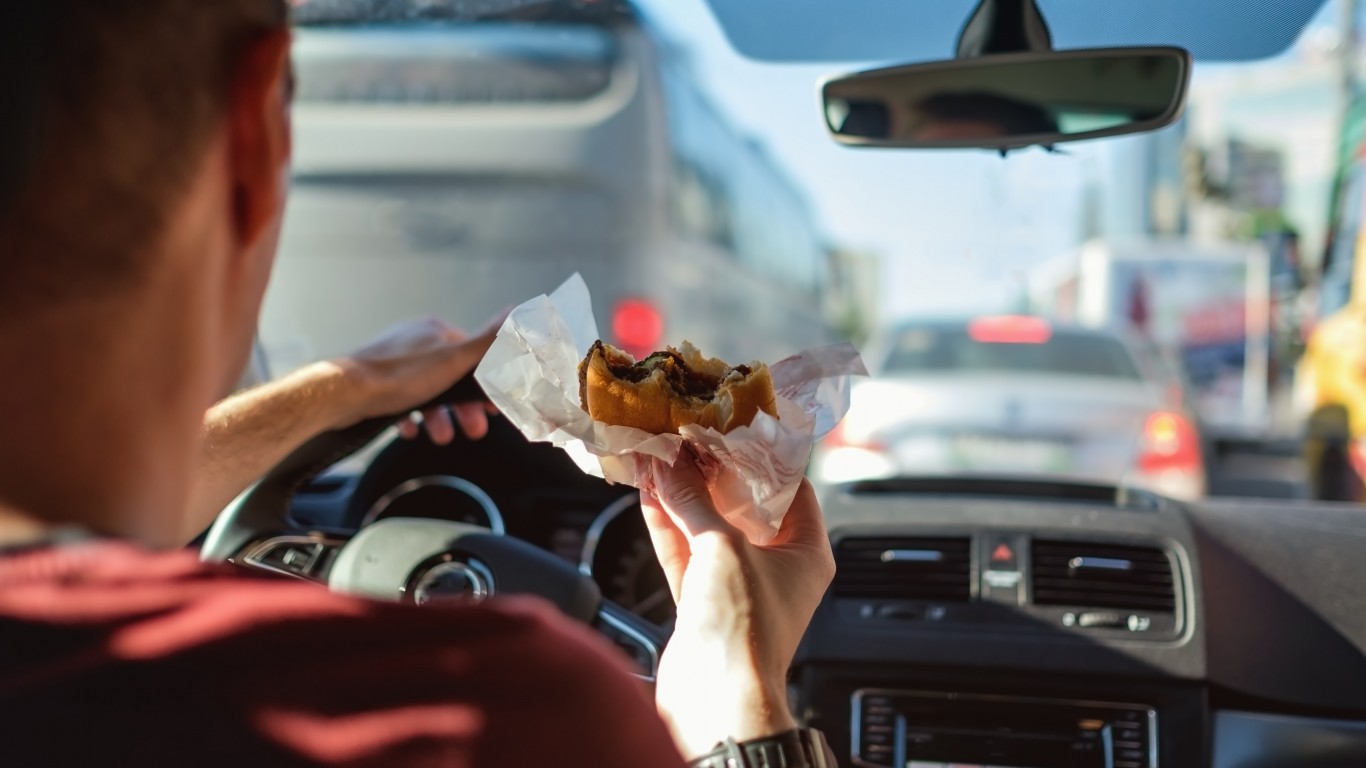
Remove garbage
It always makes sense to remove waste from your car, but now — in the age of the pandemic — that is an even more pressing concern.
Want to Retire Early? Start Here (Sponsor)
Want retirement to come a few years earlier than you’d planned? Or are you ready to retire now, but want an extra set of eyes on your finances?
Now you can speak with up to 3 financial experts in your area for FREE. By simply clicking here you can begin to match with financial professionals who can help you build your plan to retire early. And the best part? The first conversation with them is free.
Click here to match with up to 3 financial pros who would be excited to help you make financial decisions.
Have questions about retirement or personal finance? Email us at [email protected]!
By emailing your questions to 24/7 Wall St., you agree to have them published anonymously on a673b.bigscoots-temp.com.
By submitting your story, you understand and agree that we may use your story, or versions of it, in all media and platforms, including via third parties.
Thank you for reading! Have some feedback for us?
Contact the 24/7 Wall St. editorial team.
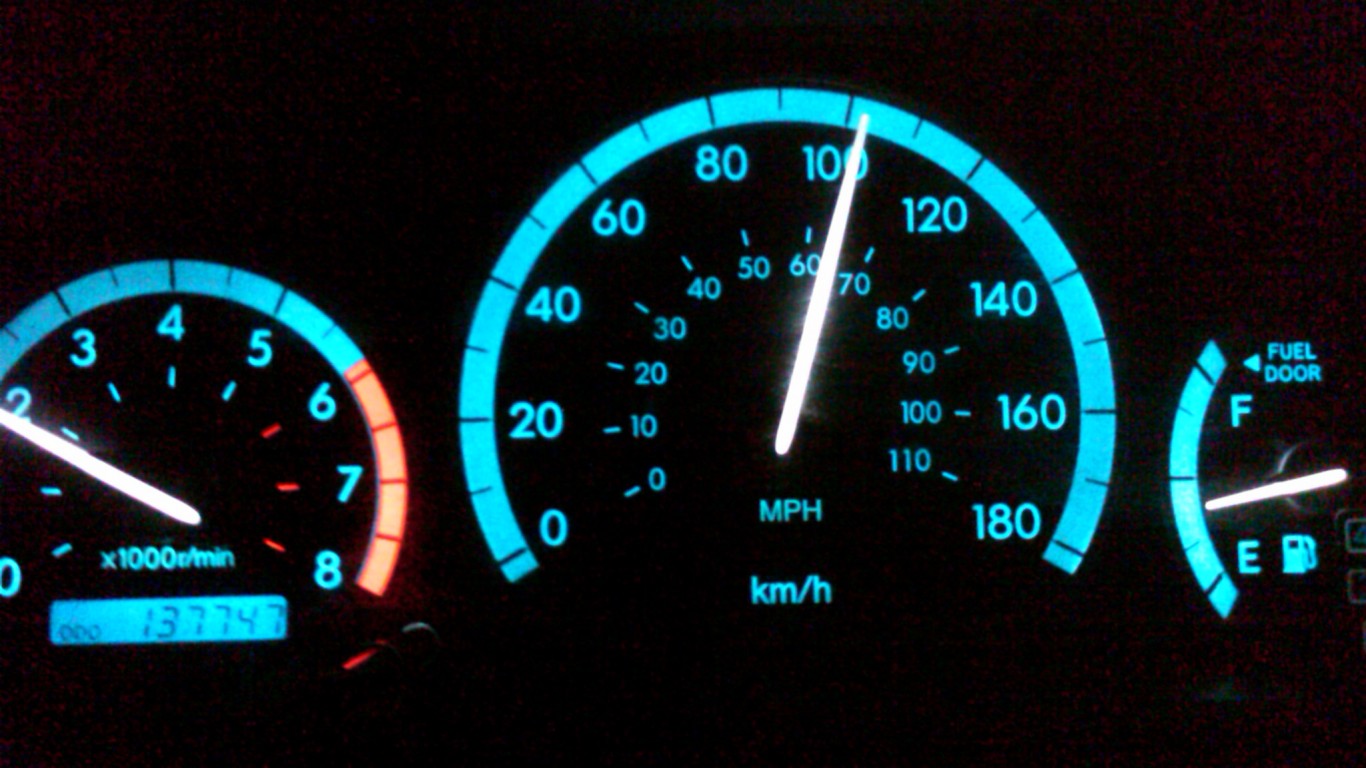
 24/7 Wall St.
24/7 Wall St.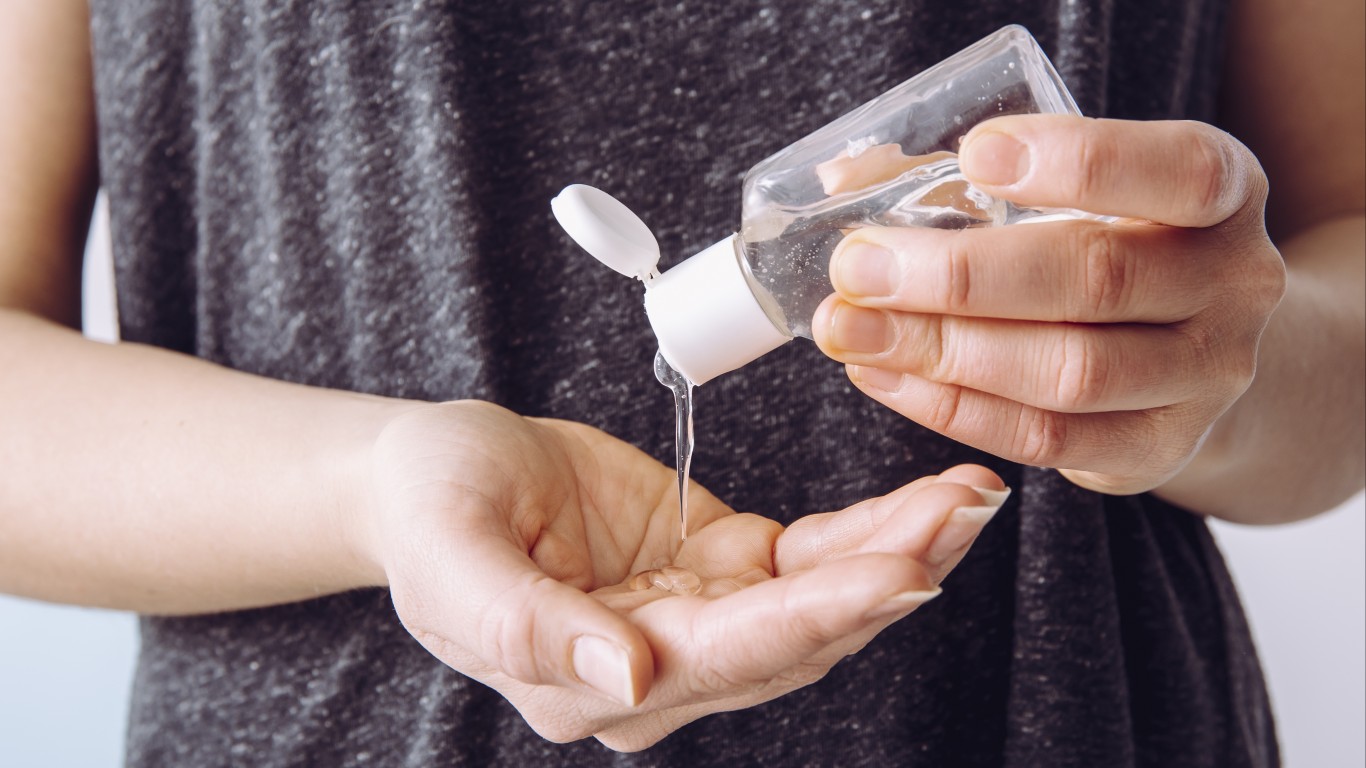 24/7 Wall St.
24/7 Wall St.
